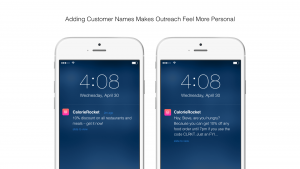By Clint Rainey
Ask business experts what qualities they believe successful startup founders possess, and there’s a number and metric for everybody: It’s three personality traits and four types of founders, or it’s the Big Five traits, or maybe six successful traits, or it’s seven, with seven personality types—on up to 16 distinct personalities, or even 50 traits defining great entrepreneurs.
It gets dizzying fast. But researchers from the University of New South Wales, Oxford University, and two other Australian universities argue in a new study that while, yes, the odds of success can be linked to specific founder-personality types, their paper formally settles on six. To reach this conclusion, they used data on more than 21,000 startup founders. And moreover, they found that the combined personalities of the startup’s entire founding team can also be a key factor.
Their paper, published on Monday in the journal Scientific Reports, claims successful founders have traits not typically found in the population at large, and their findings suggest that six particular personality types—Fighters, Operators, Accomplishers, Leaders, Engineers, and Developers, or collectively, “FOALED”—predict success much better than other factors that the business world often weighs first, such as which industry the company belongs to (their traits-based metric is allegedly five times more predictive of success), or the founder’s age (their metric is allegedly two times more predictive).
“Personality traits don’t simply matter for startups—they are critical to elevating the chances of success,” lead author and University of New South Wales adjunct professor Paul McCarthy said in a press release. “A small number of astute venture capitalists have suspected this for some time, but now we have the data to demonstrate this is the case.”
They say they divined the personality traits of their 21,000-plus founders by training a machine-learning algorithm to trawl the group’s Twitter posts. Their methodology might raise eyebrows, but it is based on a widely cited method that three of the coauthors created in 2019 to match workers with their ideal occupations. It did that by creating psychological profiles for 128,000 Twitter users (generated using the language found in their tweets) and syncing those profiles with their professions.
For this new paper on startups, the authors write that their algorithm distinguished successful founders with 82.5% accuracy. They used Crunchbase’s directory to pull data on startups’ fundraising, mergers, and acquisitions, and IPOs to measure if companies were, in fact, successful.
Their conclusion, after studying the successful startups and analyzing founders’ traits, was that good founders had a couple of particular facets of their personalities that aren’t that common. They include a drive for variety and novelty, an openness to adventure, less modesty, and higher energy levels. The more these traits are found in a company, the paper says, the greater its odds of success are.
And that is where the emphasis shifts: These traits don’t need to be concentrated in a singular founder, they write. “Firms with three or more founders are more than twice as likely to succeed than solo-founded start-ups,” a coauthor from Oxford, Fabian Stephany, said.
Startups with diverse combinations of founder types have an 8- to 10-times greater chance of success than companies with a sole founder, leading the study authors to coin something they call the Ensemble Theory of Success. It’s a theory echoing others commonly subscribed to in startup circles, perhaps most obviously the Three Hs (“hipster, hacker, hustler”), that were coined in 2012 by AKQA chief creative officer Rei Inamoto, and claim to present the winning startup formula: You need a founder who’s uber-cool, another who’s a programmer savant, and a third who always keeps their nose to the grindstone.
“There are lessons here for organizations of all kinds about the importance of having a diversity of personality types in teams,” McCarthy told Science Daily of the findings. “We estimate 8% of people worldwide may have personality traits that could make them successful founders,” he added. “Likely, many are not in the entrepreneurial field right now.”
(5)










